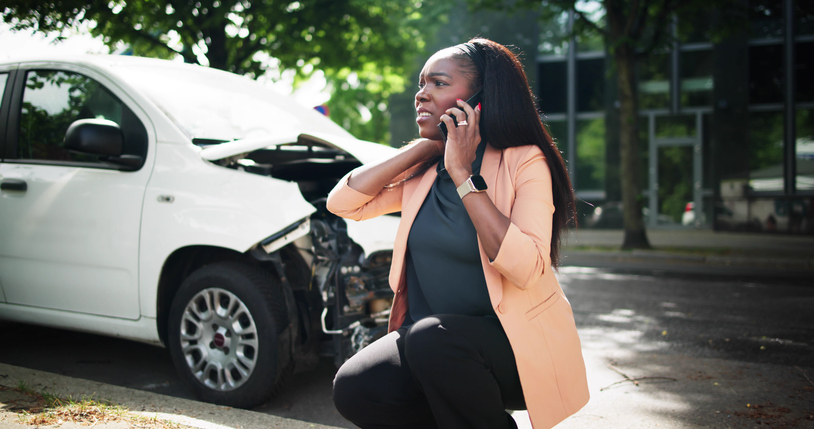
Here’s what to do immediately after a car accident in Texas.
I Got into a Crash — What Should I Do?
Key Takeaway:
If you’ve been in a car accident in Texas, your first steps should be to check for injuries, call 911, document the scene, get medical attention, and consult a personal injury attorney.
Being in a car crash is overwhelming. You may be shaken, disoriented, or even in shock. But what you do in those first moments can have a major impact—not only on your health and safety, but also on your legal rights and ability to recover fair compensation later.
Here’s what you should do immediately after a car accident in Texas.
1. Move to Safety and Call 911
If you’re physically able to move your vehicle and it’s creating a hazard, move it off the road. Turn on your hazard lights to alert other drivers.
Once safe, call 911 and report the accident. Emergency responders can assess injuries and file an official police report—an important piece of evidence for any insurance or legal claim.
2. Check for Injuries
Check yourself and your passengers for injuries. If anyone is hurt or unresponsive, tell the 911 operator and wait for emergency personnel. Avoid moving seriously injured people unless they are in immediate danger (e.g., from a fire).
Even if injuries seem minor, they may be more serious than they initially appear.
3. Document the Scene
If it’s safe to do so, use your phone to gather the following information:
-
Photos of the vehicles, damage, and accident scene
-
License plates, street signs, and road conditions
-
Contact and insurance info from the other driver(s)
-
Statements and contact info from any witnesses
The more documentation you have, the better your chances of proving fault later.
4. Seek Medical Attention
Even if you feel okay, it’s crucial to see a doctor as soon as possible. Many injuries—like whiplash, internal bleeding, or concussions—aren’t immediately obvious.
Medical records also serve as key evidence in a personal injury claim, showing the extent and timeline of your injuries.
5. Speak With a Car Accident Lawyer
Before you talk to the insurance company, talk to a lawyer.
Insurance companies are skilled at minimizing payouts and may pressure you into accepting a lowball offer. A personal injury attorney can:
-
Protect your legal rights
-
Gather and preserve critical evidence
-
Handle communication with insurance companies
Most personal injury attorneys offer free consultations—and many work on contingency, meaning you pay nothing unless you win.
Car Crash? Call Shaw.
If you were hurt in a car accident that wasn’t your fault, you may be entitled to compensation for:
-
Emergency Treatment
-
Hospital and Medical Bills
-
Lost Wages
-
Property Damage
-
Pain and Suffering
-
And More
Call Shaw today at 800-862-1260 for a free case evaluation with an experienced car accident lawyer. No fees. No pressure. Just expert legal advice when you need it most.
We look forward to serving you.
 Texas Injury Lawyers Blog
Texas Injury Lawyers Blog

